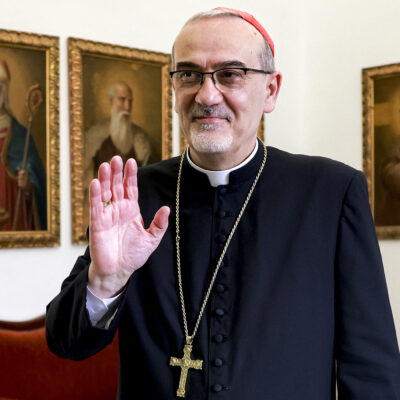Lawmakers Discuss Bolstering Financial Pressure Against Hezbollah
WASHINGTON – The House Foreign Affairs Committee held a hearing on Thursday devoted to increasing the economic pressure against Hezbollah, the Lebanese terrorist organization which has fought multiple wars against Israel in the past and has been more recently fighting alongside Syrian President Bashar al-Assad against Syrian rebel forces. While Iran provides Hezbollah with a significant percentage of its budget, Chairman Ed Royce (R-CA) emphasized the organization’s other illicit sources of income. “Since its inception, Hezbollah has developed a broad criminal network involved in a range of illegal activities — from drug trafficking to cigarette smuggling to money laundering to counterfeiting. These global terrorists double as global criminals.” he said.
Dr. Matthew Levitt, a senior fellow at the Washington Institute for Near Eastern Studies (WINEP), called for harsher sanctions against Tehran due to its ongoing support of Hezbollah. While not undermining the 2015 Iranian nuclear deal, “more vigorous action could be taken against entities such as the IRGC Quds Force, Mahan Air, and a host of other Iranian entities involved in Tehran’s support for terrorism,” he suggested.
On Thursday, the US Department of Justice announced that two Hezbollah-linked suspects were charged for planning to carrying out attacks in New York and Panama on law enforcement facilities and Israeli military personnel.
Although Rep. Tulsi Gabbard’s (D-HI) controversial recent visit with Assad triggered outrage among many Members of Congress, during Thursday’s panel, no lawmaker offered any sympathy or support for Hezbollah. One of the more progressive Democrats, Rep. Gerald Connolly (D-VA) said, “Since its founding, Hezbollah has engaged in terrorism and other destabilizing activities that threaten the security interests of the SU and our allies, especially Israel.”
Levitt advocated targeting Hezbollah’s criminal enterprise abroad including in South America, Africa, and Europe where individuals who are not technically members of Hezbollah but work closely with the Lebanese organization and offer key services.
Earlier this year on May 25, Rep. Ted Deutch (D-FL) introduced H. Res. 359 urging the European Union to designate all of Hezbollah as a terrorist entity. Currently, the EU has only labeled Hezbollah’s military wing as a terrorist group and refused to designate the Lebanese organization’s political wing.
In an odd moment during the hearing, Rep. Dana Rohrabacher (R-CA) asked, “Is Hezbollah — the people who make up Hezbollah — are they all Palestinians?” Rohrabacher added that he had previously assumed that the Palestinian refugees who fled to Lebanon were the ones who created Hezbollah.
While some have pushed for reducing the US support for the Lebanese Armed Forces (LAF) due to allegations of collusion with Hezbollah, Dr. Mara Karlin, Associate Director of Strategic Studies at Johns Hopkins University, emphasized the important role of the LAF. The LAF has deployed in southern Lebanon preventing Hezbollah from maintaining a monopoly of arms in the border area with Israel, along with fighting against terror groups including the Islamic State and the Nusra Front, she noted.






